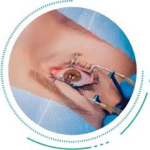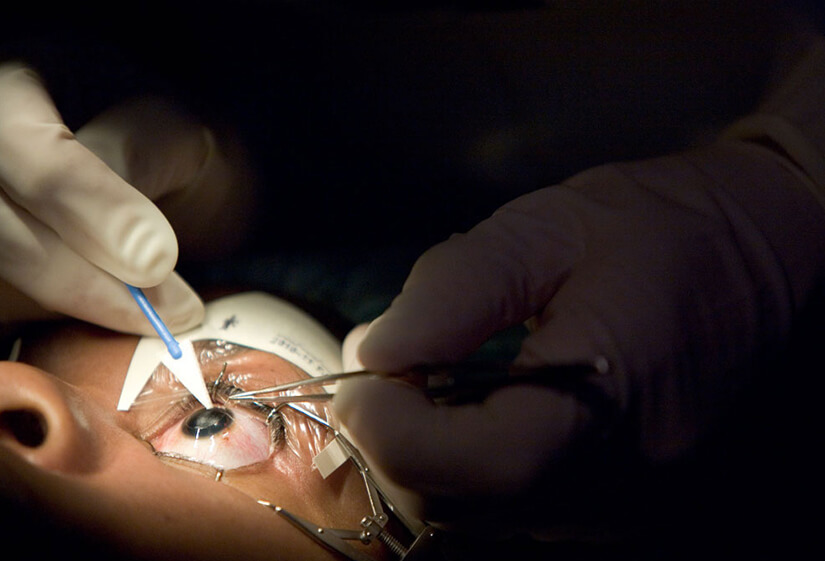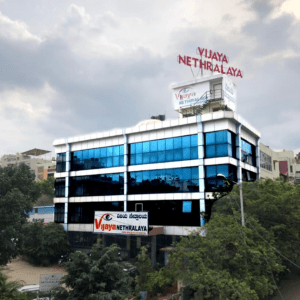Introduction:
LASIK eye surgery, also known as laser eye surgery or laser vision correction, is a popular refractive procedure that utilizes advanced laser technology to correct common vision problems like nearsightedness, farsightedness, and astigmatism.”

Understanding LASIK Eye Surgery
Definition and Purpose
LASIK stands for Laser-Assisted In Situ Keratomileusis, a procedure designed to correct common vision issues such as nearsightedness, farsightedness, and astigmatism. By reshaping the cornea, LASIK helps light focus properly on the retina, resulting in clearer vision.
Who Can Benefit from LASIK?
If you’re someone who struggles with blurry vision and relies on corrective lenses, LASIK could provide a permanent solution. It’s especially ideal for those with stable vision prescriptions over the past year.
History of LASIK Surgery
The concept of LASIK dates back to the early 1990s, building on decades of advancements in vision correction techniques. Over time, technological innovations have made the procedure safer, faster, and more effective.
Understanding LASIK Eye Surgery
Pre-Surgery Preparations
Before undergoing LASIK, you’ll need a comprehensive eye exam to assess your suitability. Your doctor will measure your corneal thickness, pupil size, and overall eye health. You’ll also be advised to stop wearing contact lenses for a few weeks to allow your cornea to return to its natural shape.
Step-by-Step Process
- Creating the Corneal Flap: The surgeon uses either a microkeratome or a femtosecond laser to carefully create a thin flap in the cornea.
- Reshaping the Cornea: An excimer laser removes microscopic amounts of tissue to reshape the cornea and correct vision.
- Repositioning the Flap: The corneal flap is placed back into position, acting as a natural bandage to aid healing.
Benefits of LASIK Eye Surgery
Improved Vision
The majority of patients achieve 20/20 vision or even better following LASIK surgery. It’s a reliable solution for reducing or eliminating dependency on glasses and contact lenses.
Long-Term Cost Effectiveness
While the upfront cost of LASIK may seem high, it’s a one-time investment that can save you money in the long run by eliminating the need for prescription eyewear or lenses.
Quick Recovery
LASIK is known for its short recovery period.
Most patients can resume their normal activities within 24 to 48 hours after LASIK surgery.
Risks and Side Effects of LASIK Eye Surgery
Common Side Effects
- Dry Eyes: Temporary dryness is common and can be managed with eye drops.
- Visual Disturbances: Some patients report halos or glare around lights, particularly at night, but these usually subside within weeks.
Rare Complications
- Undercorrection or Overcorrection: In some cases, additional adjustments may be needed.
- Flap Complications: Issues with the corneal flap are rare but possible.
Who Is a Good Candidate for LASIK Eye Surgery?
Ideal Candidates
- Adults over the age of 18 with a stable vision prescription are typically considered ideal candidates for LASIK.
- Good overall eye health
- No significant corneal or retinal issues
Who Should Avoid LASIK?
- Pregnant or nursing women
- People with autoimmune diseases or severe dry eyes
- Those with thin corneas or unstable vision
Alternatives to LASIK
If LASIK isn’t suitable for you, consider these options:
- PRK (Photorefractive Keratectomy): Ideal for thin corneas; involves reshaping the cornea without creating a flap.
- SMILE (Small Incision Lenticule Extraction): A minimally invasive procedure for treating myopia.
- Implantable Contact Lenses (ICL): An option for those who want reversible vision correction.
Post-Surgery Care and Recovery
Immediate Post-Op Guidelines
- Rest your eyes and avoid rubbing them.
- Use the prescribed eye drops to help prevent infection and alleviate dryness.
- Avoid strenuous activities for a few days.
Long-Term Care
Regular follow-ups with your eye doctor are crucial to ensure proper healing. Protect your eyes from UV exposure by wearing sunglasses outdoors.
Myths and Facts About LASIK
Common Misconceptions
- “LASIK is painful.” In reality, the procedure is almost painless, as numbing eye drops are used to ensure comfort during the surgery.
- “The vast majority of LASIK patients achieve long-lasting and stable vision correction.
The Truth Behind the Myths
Thanks to advancements in technology and the expertise of skilled surgeons, LASIK has become a safe and highly effective option for correcting vision.
Cost of LASIK Surgery
Factors Affecting the Price
The cost of LASIK varies depending on the technology used, the surgeon’s expertise, and the location of the clinic.
Is It Worth the Investment?
For many, the freedom from glasses and contact lenses is priceless. LASIK can enhance your quality of life and save you money in the long term.
Choosing the Right LASIK Surgeon
What to Look For
- Board-certified surgeons with extensive experience
- Positive patient reviews and testimonials
Questions to Ask Your Surgeon
- What technology will be used?
- What are the potential risks in my case?
- How should I prepare for the procedure?
Conclusion
LASIK eye surgery is a transformative solution for those seeking freedom from glasses and contact lenses. With its proven success rate, quick recovery time, and long-lasting results, it’s no wonder LASIK continues to be a popular choice. If you’re considering LASIK, consult an experienced surgeon to determine if it’s the right fit for you.
Author Details:
Dr. Sushruth Appajigowda holds a prominent position as a Cornea, Cataract, Glaucoma, and LASIK Surgeon in Bangalore. He serves as the chief Cataract and Refractive surgeon at Vijaya Nethralaya Eye Hospital, Nagarbhavi Bangalore. Renowned as one of the finest LASIK surgeons nationwide, he brings with him over 12+ years of experience across multiple LASIK platforms, including ZEISS, ALCON, SCHWIND, AMO, and Bausch and Lomb. Having successfully conducted over 5000 LASIK procedures, Dr. Sushruth holds the title of a Certified Refractive Surgeon and a Fellow of the All India Collegium Of Ophthalmology. Furthermore, he stands as a distinguished speaker at various National and International Forums, using his expertise to guide you in selecting the most suitable procedure based on your health requirements.

http://vijayanethralaya.com/link-in-bio/
FAQs
- What is the success rate of LASIK?
LASIK has a success rate of over 95%, with most patients achieving 20/20 vision or better. - How long does the procedure take?
The LASIK procedure usually takes around 15-20 minutes to complete for both eyes. - Is LASIK painful?
No, the procedure is painless due to numbing eye drops. This is for informational purposes only. For medical advice or diagnosis, consult a professional. - You may experience a mild pressure sensation, but there is no pain during the procedure.
- Can LASIK correct all vision problems?
LASIK is effective for most refractive errors but may not address severe conditions like advanced keratoconus or presbyopia. - How long do LASIK results last?
For most patients, LASIK results are permanent. However, age-related vision changes like presbyopia can still occur.












